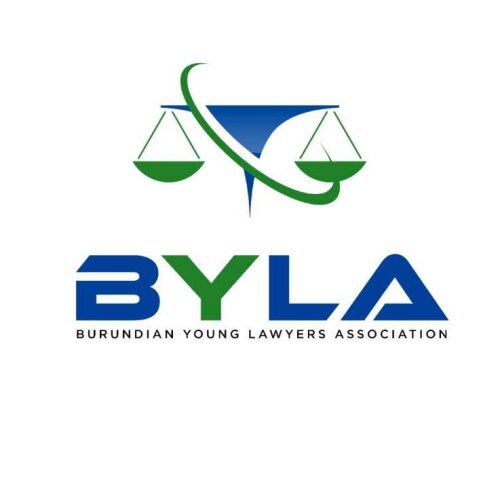Best Tax Lawyers in Burundi
Share your needs with us, get contacted by law firms.
Free. Takes 2 min.
Or refine your search by selecting a city:
List of the best lawyers in Burundi
About Tax Law in Burundi:
Tax law in Burundi governs the taxation of individuals and businesses within the country. The tax system in Burundi includes various taxes such as income tax, value-added tax (VAT), corporate tax, and property tax. Understanding and complying with tax laws is essential to avoid penalties and legal issues.
Why You May Need a Lawyer:
There are several situations where you may need a lawyer to assist you with tax-related issues in Burundi. Some common reasons include disputes with the tax authorities, tax audits, filing tax returns, handling tax investigations, or seeking legal advice on tax planning strategies. A lawyer can help you navigate the complex tax laws and protect your rights.
Local Laws Overview:
Key aspects of local tax laws in Burundi include income tax rates, VAT rates, tax incentives for businesses, tax filing deadlines, and penalties for non-compliance. It is important to understand these laws to ensure compliance and mitigate any potential risks of legal consequences.
Frequently Asked Questions:
1. What are the income tax rates in Burundi?
The income tax rates in Burundi range from 20% to 35%, depending on the level of income.
2. When is the deadline for filing tax returns in Burundi?
The deadline for filing tax returns in Burundi is typically March 31st of the following tax year.
3. Are there any tax incentives available for businesses in Burundi?
Yes, there are various tax incentives available for businesses in Burundi, including tax holidays, investment allowances, and deductions for certain expenses.
4. What are the penalties for non-compliance with tax laws in Burundi?
Penalties for non-compliance with tax laws in Burundi may include fines, interest on late payments, and legal action by the tax authorities.
5. Can a lawyer help me with tax planning strategies in Burundi?
Yes, a lawyer can assist you with tax planning strategies to minimize your tax liability and comply with local tax laws.
6. How can I dispute a tax assessment in Burundi?
If you disagree with a tax assessment in Burundi, you can file an appeal with the tax authorities and seek legal representation to assist you with the dispute.
7. Are there any resources available to help me understand tax laws in Burundi?
Yes, you can consult the Burundi Revenue Authority (OBR) website or seek guidance from tax professionals and legal advisors.
8. Can I represent myself in tax-related legal matters in Burundi?
While it is possible to represent yourself in tax-related legal matters, it is advisable to seek assistance from a lawyer to ensure your rights are protected and your interests are represented effectively.
9. What are the key differences between income tax and VAT in Burundi?
Income tax is a direct tax on individuals and businesses' income, while VAT is an indirect tax on goods and services consumed in the country.
10. How can I avoid tax-related legal issues in Burundi?
To avoid tax-related legal issues in Burundi, it is essential to maintain accurate records, comply with tax laws, seek professional tax advice, and address any tax concerns promptly.
Additional Resources:
For more information on tax laws in Burundi, you can visit the Burundi Revenue Authority (OBR) website or consult with a local tax advisor or legal representative.
Next Steps:
If you require legal assistance with tax-related matters in Burundi, consider consulting with a qualified tax lawyer who can provide you with expert guidance and representation to address your concerns effectively.
Lawzana helps you find the best lawyers and law firms in Burundi through a curated and pre-screened list of qualified legal professionals. Our platform offers rankings and detailed profiles of attorneys and law firms, allowing you to compare based on practice areas, including Tax, experience, and client feedback.
Each profile includes a description of the firm's areas of practice, client reviews, team members and partners, year of establishment, spoken languages, office locations, contact information, social media presence, and any published articles or resources. Most firms on our platform speak English and are experienced in both local and international legal matters.
Get a quote from top-rated law firms in Burundi — quickly, securely, and without unnecessary hassle.
Disclaimer:
The information provided on this page is for general informational purposes only and does not constitute legal advice. While we strive to ensure the accuracy and relevance of the content, legal information may change over time, and interpretations of the law can vary. You should always consult with a qualified legal professional for advice specific to your situation.
We disclaim all liability for actions taken or not taken based on the content of this page. If you believe any information is incorrect or outdated, please contact us, and we will review and update it where appropriate.
Browse tax law firms by city in Burundi
Refine your search by selecting a city.












